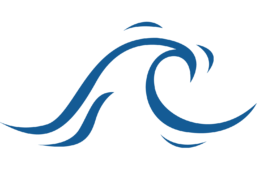401k Communication Plan For Employers
Having a 401k plan for your employees is an important part of overall employee benefits and can be a great way to motivate them. However, employers must ensure that they have effective communication strategies in place to properly educate their workers on the 401k plans offered and the benefits associated with contributing to them.
In this blog, we’ll discuss some tips employers should consider when communicating their 401k plans to employees.
Steps to Effectively Communicate 401K Plans to Employees
1. Explain the Benefits: Employers should clearly explain what benefits their 401k plan provides, such as tax advantages and potential savings for retirement. It is important that employers make sure to provide detailed information on the features and benefits of their plan in order to help employees understand why contributing to a 401k is beneficial.
2. Provide Easy-to-Understand Information: Employers should make sure that their 401k plan communications are easy to understand, with clear language and simple explanations. Documents such as brochures, handouts, or slideshows can be helpful in providing comprehensive information about the 401k plan in an understandable way.
3. Offer Guidance: Employers should also provide employees with guidance on how to manage their 401k contributions and investments, and when appropriate offer advice for things such as selecting funds or planning for retirement.
4. Encourage Participation: In addition to providing helpful information about the 401k plan, employers should also take steps to encourage participation. Employers should highlight incentives such as employer match programs or potential tax advantages, and provide opportunities for employees to ask questions about the plan.
5. Regularly Audit/Review Plan: Finally employers should also review their 401k plans regularly to ensure that they meet the needs of their employees and are up-to-date with the changing regulations. This will help employers ensure that their 401k plans are competitive and attractive to current and future employees.
By considering these tips employers can create effective communication strategies for their 401k plans, helping to educate and motivate their workforce while also ensuring that they have a competitive plan in place. Employers should make sure to provide detailed information about the features and benefits of their 401k plan, offer guidance on how to manage contributions and investments, highlight incentives for participation, and regularly audit/ review their plan. Taking these steps will help employers communicate effectively with their employees about 401k plans while also ensuring that they have a competitive offering in place.
Questions to Ask Employees When Discussing Retirement Savings
As employers strive to create a workplace that provides the best 401k plans for their employees, effective communication is essential. To help employers start conversations with their employees about retirement savings, here are a few starter questions employers can ask:
- Do you understand compounding interest?
- How much do you think you’ll need for retirement?
- Are you familiar with different investment options?
- Do you know the difference between a 401k and traditional IRA?
- Are you aware of your current 401k plan options?
- How comfortable do you feel about contributing to your 401k?
- Do you know the amount of money that employers are matching for employee contributions?
- Are you familiar with how investments work in a 401k plan?
- What other retirement savings options do you have available to you outside of your 401k plan?
An employer should also consider adopting a plain language approach to communicating their 401k plan. This would involve:
- Providing employees with clear explanations of key terms, such as matching contributions, vesting schedules, and loan features
- Making sure employees understand their options for diversifying investments in their 401k plan
- Establishing a culture of open communication with employers frequently checking in on employee progress towards retirement savings goals
Review Your Current 401k Offerings
Employers should also audit/ revisit their current 401k offerings to ensure they are competitive, accessible and cost-effective for employees. This includes reviewing:
- The overall investment choices available
- Matching contributions employers are offering
- Any fees associated with their 401k plans
Create a Communications Plan
Creating a 401k communication plan is an important step employers can take to help employees understand their retirement savings options and make the most of their 401k plans. By taking the time to review their current offerings and communicate with employees, employers can create an effective 401k communication plan that employees will benefit from. Encouraging employers to audit/ revisit their current 401k offerings will also help ensure they are providing their employees with the best retirement savings opportunities.
By establishing a culture of open communication employers can build trust with their employees and ensure they are on track with their retirement savings goals. By investing in a 401k communication plan employers can help empower employees to make the most of their 401k plans and ensure they are well prepared for retirement.
In Summary
Employers should strive to create an effective 401k communication plan that helps employers and employees understand their 401k plans and make the best decisions for retirement savings. With proper communication employers can confidently ensure that their employees are well-informed about their 401k options and employers’ 401k offerings, resulting in more beneficial retirement savings for employers and their employees.
Contact us to review your existing 401k or talk through a plan of action to offer retirement savings to your employees today!
This information was developed as a general guide to educate plan sponsors but is not intended as authoritative guidance or tax or legal advice. Each plan has unique requirements, and you should consult your attorney or tax advisor for guidance on your specific situation. In no way does advisor assure that, by using the information provided, plan sponsor will be in compliance with ERISA regulations.










